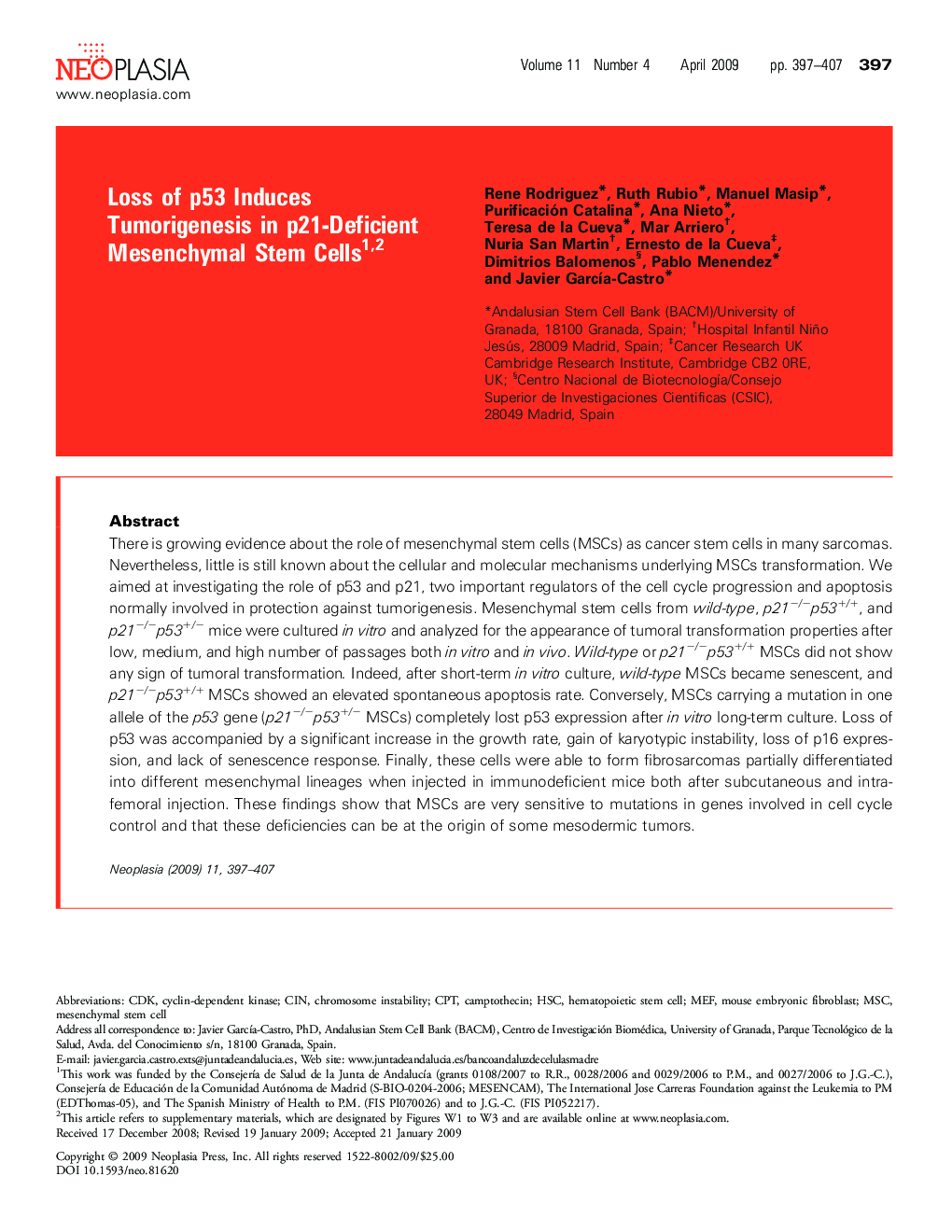| Article ID | Journal | Published Year | Pages | File Type |
|---|---|---|---|---|
| 2152015 | Neoplasia | 2009 | 13 Pages |
Abstract
There is growing evidence about the role of mesenchymal stem cells (MSCs) as cancer stem cells in many sarcomas. Nevertheless, little is still known about the cellular and molecular mechanisms underlying MSCs transformation. We aimed at investigating the role of p53 and p21, two important regulators of the cell cycle progression and apoptosis normally involved in protection against tumorigenesis. Mesenchymal stem cells from wild-type, p21-/-p53+/+, and p21-/-p53+/- mice were cultured in vitro and analyzed for the appearance of tumoral transformation properties after low, medium, and high number of passages both in vitro and in vivo. Wild-type or p21-/-p53+/+ MSCs did not show any sign of tumoral transformation. Indeed, after short-term in vitro culture, wild-type MSCs became senescent, and p21-/-p53+/+ MSCs showed an elevated spontaneous apoptosis rate. Conversely, MSCs carrying a mutation in one allele of the p53 gene (p21-/-p53+/- MSCs) completely lost p53 expression after in vitro long-term culture. Loss of p53 was accompanied by a significant increase in the growth rate, gain of karyotypic instability, loss of p16 expression, and lack of senescence response. Finally, these cells were able to form fibrosarcomas partially differentiated into different mesenchymal lineages when injected in immunodeficient mice both after subcutaneous and intrafemoral injection. These findings show that MSCs are very sensitive to mutations in genes involved in cell cycle control and that these deficiencies can be at the origin of some mesodermic tumors.
Keywords
Related Topics
Life Sciences
Biochemistry, Genetics and Molecular Biology
Cancer Research
Authors
Rene Rodriguez, Ruth Rubio, Manuel Masip, Purificación Catalina, Ana Nieto, Teresa de la Cueva, Mar Arriero, Nuria San Martin, Ernesto de la Cueva, Dimitrios Balomenos, Pablo Menendez, Javier GarcÃa-Castro,
